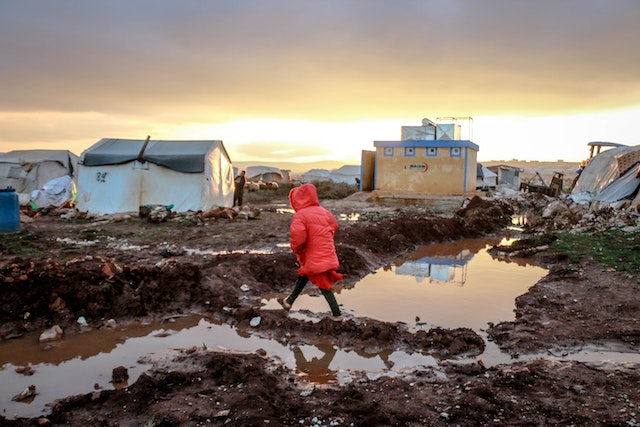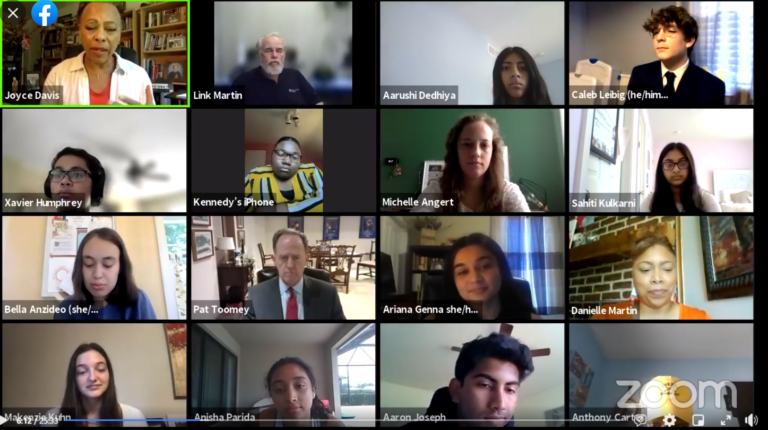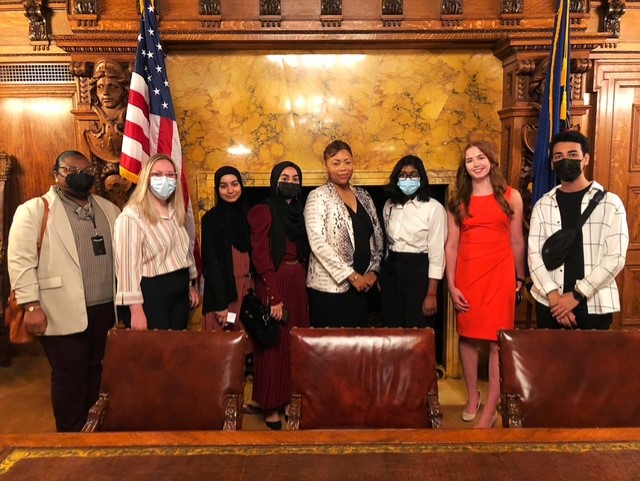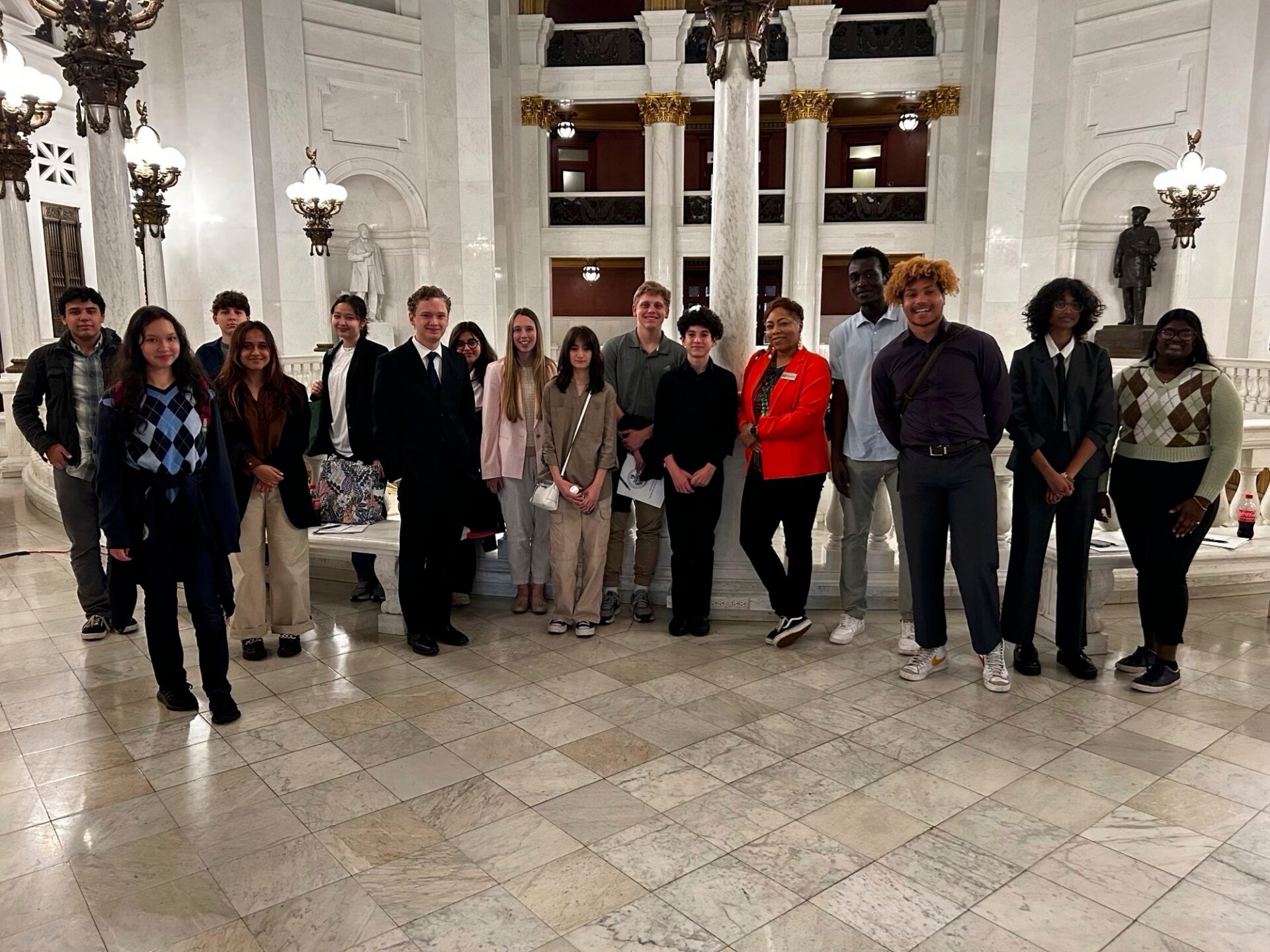
The Significance of Forced Human Migration
By: Mackenzie Kuhn – 2021 Summer Intern
At the end of 2020, over 80 million people were forcibly displaced across the world. This surpasses more than double the amount nearly a decade ago. To put this into perspective, this number is roughly equivalent to the populations of Spain and Canada, combined.
In recent years, we have seen some migration issues gain more traction in the media. One specific topic that comes to mind is the United States’ immigration policy at its southern border. However, forced migration, specifically refugee movement, is not an issue that is often at the forefront of large-scale news cycles, and it is rarely covered by local news outlets. So, why should we care?
Forced human migration, specifically concerning refugee movement, continues to grow as a human rights issue. The United Nations defines a refugee as “someone who has been forced to flee his or her country because of persecution, war, or violence.” This type of migration also includes people who are internally displaced in their home countries, and those who are seeking asylum. Rather than immediately jumping to vilify migrants, we should first consider the causes that force people from their home countries.
In Syria, some people’s only hope for survival is to seek asylum or refugee status. The civil war has left hospitals, schools, homes, and utilities destroyed. In Yemen, conflict fuels the poverty and famine that plague its people, many of whom are displaced from their homes but remain in the country. Across the world, we are seeing more and more people left with no choice but to become immigrants because of the adverse effects of climate change.
Forced human migration contributes to an overall sense of global unrest. Violence, genocide, and extremism are perpetuated by the displacement they create. This displacement further fuels conflict, like wars and terrorism, which when sustained have the potential to envelop us all.
This also inherently leads to domestic unrest, as people flee to other country’s borders for survival. Mass influxes of migration strain the capacity of available resources, especially when attempting to navigate the legal system. There are also tensions that arise between migrants and those who already reside in a given place. In the United States, we are currently witnessing President Biden grapple with the administration’s strategy for developing its southern border policy and easing any tensions between various groups involved. The main issue here lies with the administration’s goal of creating a system that deters illegal immigration but lives up to his promises of being humane and just, all while the numbers of migrants who arrive at the border continue to rise.
Even more, the adverse effects of forced human migration have only been exacerbated by the Covid-19 pandemic. As the issue of global health has taken a place at the forefront of media attention, we have been shown firsthand how sickness spreads more easily when people are physically uprooted from their homes.
The conditions that occur in countries like Syria and Yemen that contribute to forced human migration, such as extreme violence and famine, are not problems that most of the United States population is directly familiar with. Even then, it becomes easy to distance oneself from such atrocities against humanity when they occur across the world and are only being shown in photographs or through a screen. However, while there are a handful of international organizations and institutions that function to address refugee crises, local communities, and we as individuals, are not immune from the implications.
The Biden administration should uphold its commitment to rebuild the United States Refugee Admissions Program and expand refugee resettlement. It should also continue to align itself with the human rights standards that are widely accepted internationally. One country alone cannot end the scale of human displacement and suffering and eliminate all the root causes of migration. However, in a collective international effort, we can address these causes and create strategies to alleviate conditions like poverty and malnutrition in the long-term.
Local communities can also become involved in raising awareness about refugee crises and promoting human rights. We have witnessed this firsthand in Central Pennsylvania, where there is a willingness to help resettle those who are unfortunately affected by crisis. In 2017, Lancaster, Pennsylvania was dubbed ‘America’s Refugee Capital’ by the BBC. It was calculated that between 2013 and 2017, Lancaster had received more than “20 times more refugees per capita than the rest of the US.”
We can also make a difference individually. We can research and support organizations that protect refugees – there are many groups that are based across the state of Pennsylvania! We can contact our elected officials, push for a path to citizenship, and hold them accountable for the political commitments they make. We can educate ourselves and others about current global affairs, specifically regarding the migration issues that occur outside our country’s borders.
The number of forcibly displaced persons continues to increase. The number of migrants at the United States’ southern border has reached record highs. If we are not working to address the problem then we are contributing to the problem. Not only that, but those who are able to distance themselves from the problem now will soon face its direct consequences.
Mackenzie Kuhn wrote this opinion piece while interning with the World Affairs Council of Harrisburg and the PA Media Group.




